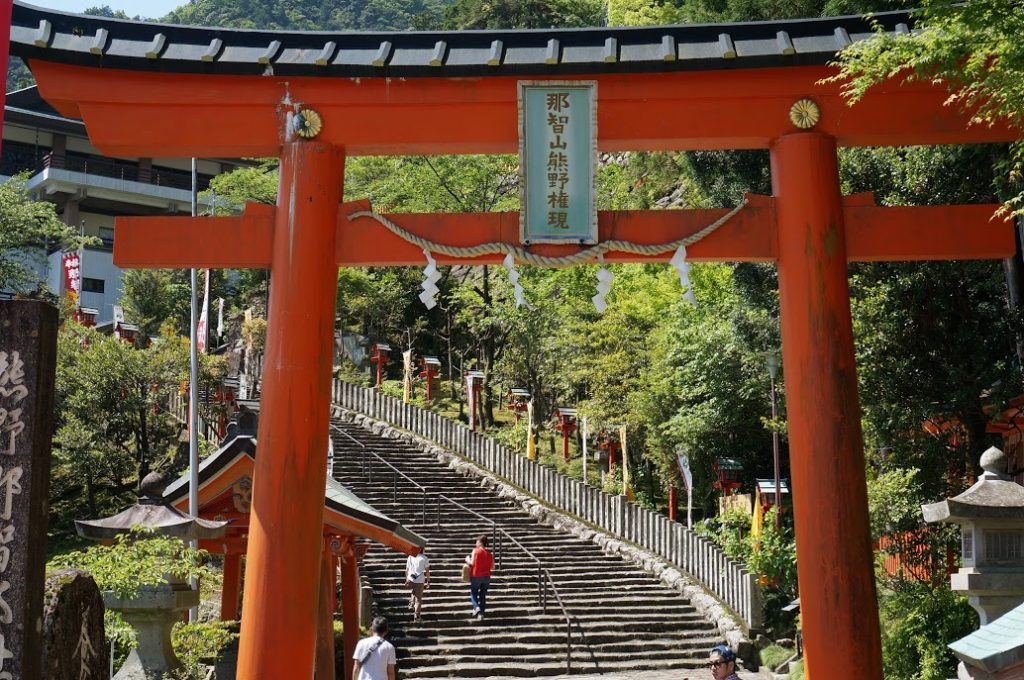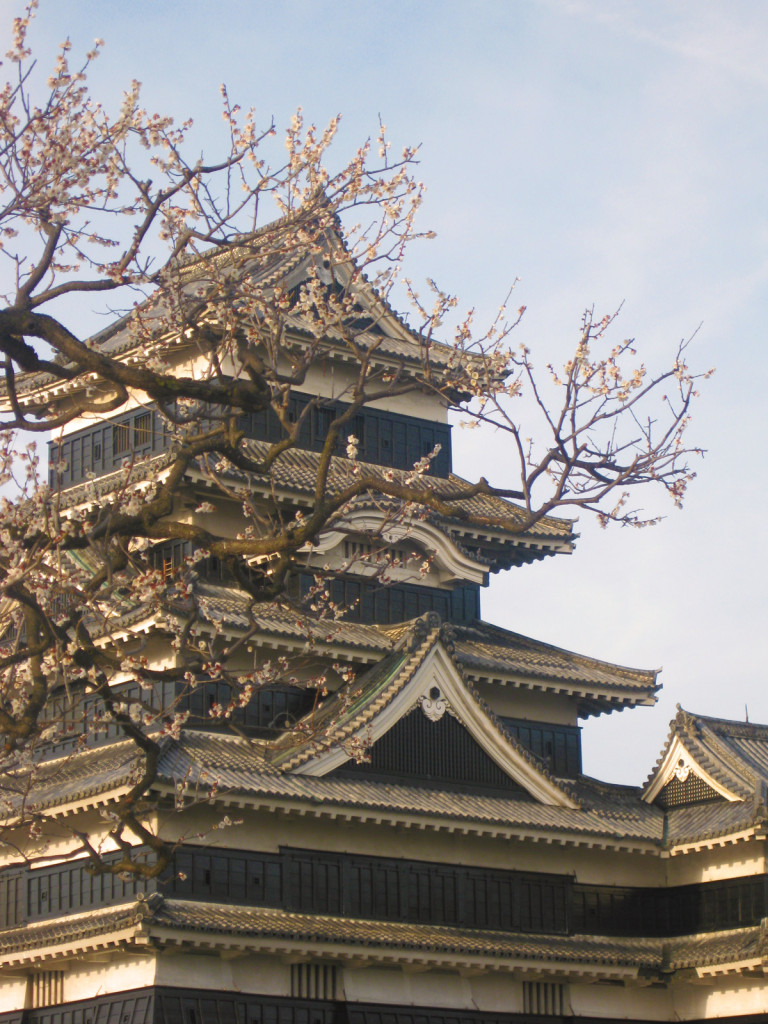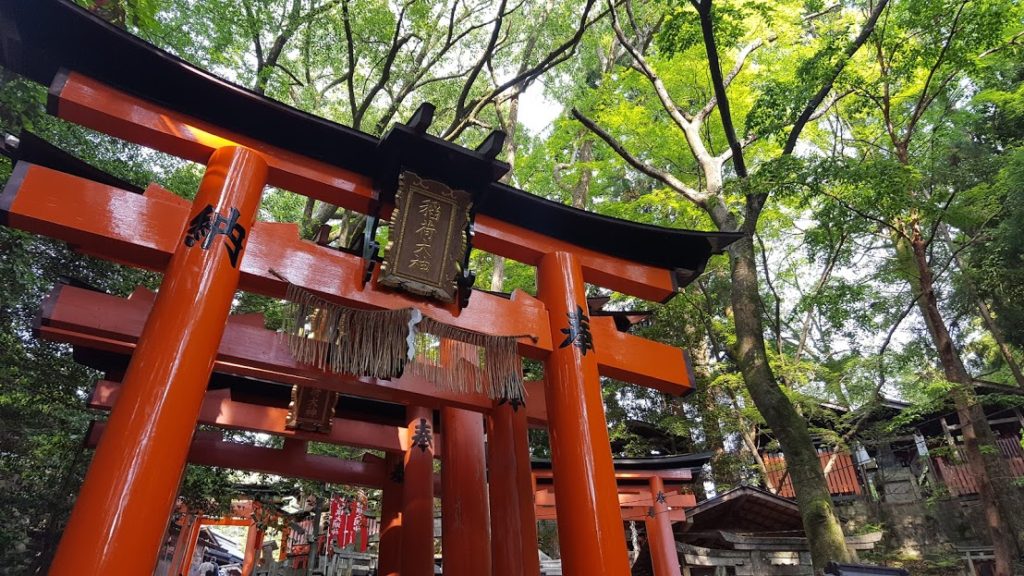Is Moving Abroad Just a Form of Escape?
It’s a question that all expats ask themselves sometime or another:
Am I in a foreign country because I really like it here, or am I using this culture as a form of escape from a deep-rooted problem at home?
I kept asking myself this after reading “Six Foot Bonsai,” an autobiography I read for a book club. It’s the story of a white woman from Michigan who is, to an unhealthy degree, utterly Japan obsessed. After marrying an abusive Japanese man and giving birth to two half-children (who are subsequently abused), she explains how her fixation on Japan essentially ruined her life.
“Japan was my drug of choice,” she wrote. “And I couldn’t get enough of it.”
This line had me thinking:
Were My Years in China and Japan a Form of Escapism? Was Japan My Drug of Choice?

I grew up half-Asian in a small coal mining town in Utah, so to say I was isolated and outcasted is an understatement. One medium that got me through the pain of adolescence was –yes, I must admit–Japanese anime and manga. This is the usual ‘gateway drug’ that gets most young tweens and teens sucked into the world of Japan.
Unlike my peers, however, I fell deep for Japan. Although I found out about Japan through anime and manga, learning the language and getting a minor in Japanese studies made me realize that I loved much more than anime–I loved Japan’s literature, art, culture and people. After my first exchange trip to Japan, I had fallen off the deep end and there was no going back.
And when I first moved to Japan, the “high” was amazing. The bullet trains, the clean streets, the polite locals, the untouched nature, samurai castles and sliding doors and kimonos–oh man, it was everything I wanted and more.
But Pretty Soon, the High Wore Off

I’m half-Asian, but most people think I’m 100% white. As most expats like to point out, being white (or non-Asian) anywhere in Asia elicits unwanted attention. People stare. They point. They treat you special. Shower you with praise. Immediately approach you to be their new, foreign friend.
Some expats relish in the attention. Others find it uncomfortable.
I was the latter.
Unlike other foreigners who got a ‘high’ from being the gaijin-center-of-attention, I loathed it. I just wanted to fit in.
But no matter how hard I studied Japanese and perfectly executed their customs, the Japanese never let me in. In their eyes, I would forever be a gaijin. An outsider. A foreigner.
I was distraught.

On top of that, I saw cracks in my perfect world that was Japan. I noticed people around me suffering from extreme bouts of loneliness. I saw emotional suppression brought on by a repressive society. My coworkers and friends were overworked and exhausted. My Japanese girlfriends turned a blind eye to their cheating husbands.
I wanted to be Japanese and fit in, but my core Western values found it hard to accept the above. I would never be able to tolerate a cheating husband. I found it hard to do staged overtime work for the sake of it. No matter how hard I tried to convince myself that this was Japan and I had to adapt to their ways, I could in no way persuade myself that I should change my core values for the sake of living in Japan.
After two years in Japan I realized that I couldn’t stay there for the rest of my life–so I went to China.
Again, Was I Running Away From the Real World? Did China Mask My Problems?
From the moment I stepped foot in China, I knew this place was better suited for me than Japan. It may sound odd, but after living in Japan it was utterly refreshing to be chewed out by someone on the street. To see such open display of emotion–even anger or frustration–was liberating. People screamed at me and I could scream back. The openness of Chinese society felt like a reassuring hug. I melted into Shanghai and it became the metropolitan life this small-town-Utah girl always dreamed of.
As I lived in China, switching between studying Chinese and working in various companies, I would talk to my friends in the US and hear about their mundane, yet stressful lives. Going to pharmacy school. Working the same job for four years and trying to get a promotion. Trying to pass the LSAT (law certification in US).
In my own way I was moving on with my life, but a part of me also thought:
Am I hiding in China while the real world goes on?
Long-time readers of my blog will know that when I returned to the USA after living in Asia, I had it rough. I had to play catch-up. It wasn’t easy, and there were times I wanted to hop on a plane and go straight back to China.
Yet despite all the ‘pain’ living abroad brought me, I often asked myself if I would do it all over again. Would I get on that plane to Japan at 22 years old again if I knew what I know now? Or would I stay in the US to build up my career?
Without hesitation, I always choose to get on that plane.
And it’s because China and Japan were not my drug–they are an integral part of who I am

Yes, many expats do run off to foreign countries because they want to escape the harsh realities of their home country. Some go too far and compromise their morals and values in order to fit in (like the lead in Six Foot Bonsai). Others completely ignore local custom and relish in the celebrity lifestyle that a foreign life brings.
But there are some who truly enjoy it… who truly love and cherish the country and culture. Despite my negative comments about Japan written above, it’s a strong part of who I am. Even if Japanese people laugh at me for saying it, I can say with 100% confidence that all my years studying Japanese and living in Japan have turned a core part of me Japanese. I can resonate with the culture. It’s who I am. I’m proud of it. China is the same.
These countries and cultures were not drugs. They are precious memories. They are building blocks that make me…. me.
Loving Another Country is Not a Curse or Drug
Going to another country to run away is, indeed, escapism.
Taking interest in another culture and falling in love with it is not necessarily escapism. It’ a hobby. An interest. And–for some–maybe a way of life.
I don’t blame Japan or China for my lackluster career or for wasting my youth. I don’t blame these countries for anything.
I don’t hate America. I don’t dislike my reality. I’m not looking for an escape where a new culture is my drug.
I just love Japan and China. It’s as simple as that.
11 thoughts on “Is Moving Abroad Just a Form of Escape?”
I love your writing! And I love your point of view, and the things you shared; I feel like I always learn something new about you.
But to answer your blog title question, I would say, YES. For retirees, it’s finally a chance to “escape” after all those years of waiting for retirement. Or it can be purely financial, they have an opportunity to support themselves more comfortably than they could back home.
For those looking for adventure, they’re escaping the mundane or delaying what society perceives to be “real life”. And for those who are obsessed with another culture, or place, they are escaping their own for what they hope to be a better one. And like you, go through the honeymoon phase and then the more balanced one where we see the darker side of things.
Originally I saw that question, that word – escape – as a negative one. No, I’m not escaping! But if I’m honest, I was, but that’s not necessarily a bad thing. You can also escape a dysfunctional relationship. Escape can also be a form of liberation and freedom. And hey, Escape from Alcatraz is a good movie. 😛
Escaping can also be another word for “finding yourself” or “figuring stuff out”. Because living abroad is not the non-stop holiday that some folks back home see life is for us, expats.
Great post, Mary. Definitely one of my favorites from you. I’m glad you were able to successfully return to America – and to learn that I’m not the only one who has gotten angry at the locals.
Yes, you make a very good point, Lani! Why does ‘escape’ have to be a bad thing? I mean, it’s not good to escape from responsibilities that matter (like leaving your kids or something); but escaping to find a newer and better future is actually what many of our parents and grandparents did when they moved to the US.
I think what most people don’t realize about expats who move abroad is: life becomes mundane no matter where you are. My shanghai life wasn’t a fun and exciting adventure everyday–most of it was work, come home, cook dinner, and pay the bills. Pretty much what I would do in the US. But I had better Chinese food and got to practice my Mandarin 😉
Thanks for the very nice compliment, Lani! And I don’t know if I was “successful” about returning back, haha. I think about moving abroad at least every other day. Maybe once you travel, you just can’t stop?
I think it would behoove most Americans to fall at least a little in love with a culture that is not their own. So many of our citizens think the U.S. is the best without ever experiencing another country. It would be nice to hear more of them say, “Wow, maybe we should be more like Japan when it comes to public transportation and Germany when it comes to public education,” instead of “America, love it or leave it!”
Yeah I whole-heartedly I agree. I think I wrote a post about how I thought America was the best country on Earth, but then I went to Japan and saw it was a lot cleaner and safer than the US and was mind-blown. America wasn’t the utopia I imagined it to be.
Americans really need to have a gap year or something. Having more Americans being exposed to the world would be a very good thing indeed.
I originally moved abroad to escape the lack of jobs in America. It was a different type of escape than I think you’re describing, heh, and I literally knew nothing about the Middle East when I signed up for the job. But then I think it really did become escapism and avoiding America and all that it is and all the things an outside perspective made me wary of…
Ah, I was the same. I moved to China not just because I liked China, but because it was 2010 and there were no jobs in the USA and China was booming. I know what you mean.
Still, I can’t help but feel like compared to my friends who stayed and toughed it out, I’m still playing catch up. Then again, some of my friends in China *really* made it big (mostly through entrepreneurism), so I guess the grass is always greener.
My motto to myself was: I’m in China because I like it. I’ll stick to it. There was nothing in the US I was really running from, I just preferred life in China. Even today, I sometimes think that. Once you live abroad and change, it’s hard to go back to what you once thought was ‘normal.’
Middle East is a HUGE culture shock (more than East Asia, I must say). I’m always fascinated reading your blog and learning more about this region I know so little about.
During my first years in China I wondered if I was here to avoid “real life” as Lani said. But… what is real life? Staying in your hometown forever? Why is that a more acceptable option that moving to another country? My life in China is very real… and I’d say suspiciously similar to the lives of my friends back home! After all, routine is the same everywhere!
Ah, it’s so true!! After living in Shanghai for a few months, it just started to feel like the regular, old mundane life you would have anywhere else. I worked, paid bills, shopped for groceries, etc.. Although I do have to say living in China had many perks… love all the convenience stories, the public transit, and the good food!
Japanese will respect you only when you dont try to fit in. They want you to experience what they experience and get in the trenches with them. you will develop a sense of respect and loathing at the same time.hard to explain but most gaijin mess up by trying to fit in. Its a bipolar way of living; you must connect to what they endure, but at the same time, not become one with it, as they must do. You have to accept the consequences for your difference. If he/she yells or calls the police, oh well its not a crime to be a human being but it should be a crime to discriminate based on race etc. I developed an indifference or immunity, its the only way to survive, like I really dont care what they think; if he stares at me, I stare at him. He is obnoxious to me, same to him. They run every time as its a culture of shame. Youll get things figured out, your mind and body will teach you…just dont fight it What works back home doesnt work in Japan.
Food for thought indeed! I think moving to another country always starts as escapism of some sort, whether from financial woes or lack of individual freedom or escape from political persecution. Hopefully as one spends more time in the new destination, this escape transforms into something deeper: a chance to discover whether one can be fulfilled submerged in the routine of the adopted country.
For sure, living in Japan and China has enriched your life. So Vietnam is very removed to you since it is half of you.